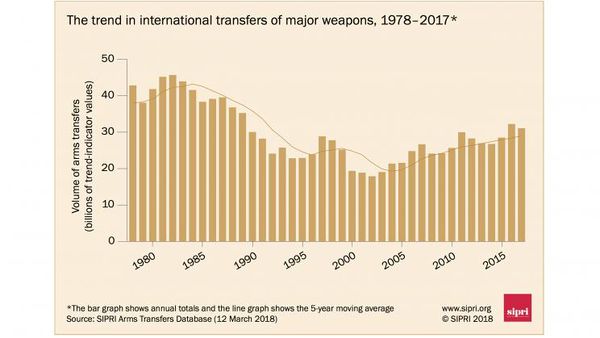Difference between revisions of "Group14 Proposal"
Kalaisr.2017 (talk | contribs) |
Kalaisr.2017 (talk | contribs) |
||
| Line 11: | Line 11: | ||
| style="font-family: Calibri; font-size:120%; text-align:center;" width="25%" | | | style="font-family: Calibri; font-size:120%; text-align:center;" width="25%" | | ||
| − | [[ISSS608_2017- | + | [[ISSS608_2017-Group14| <font color="#FFFFFF">Background</font>]] |
| style="font-family: Calibri; font-size:120%; text-align:center;" width="25%" | | | style="font-family: Calibri; font-size:120%; text-align:center;" width="25%" | | ||
| − | [[ISSS608_2017-18_T3_Assign_Kalai Selvi_Data_Preparation| <font color="#FFFFFF"> | + | [[ISSS608_2017-18_T3_Assign_Kalai Selvi_Data_Preparation| <font color="#FFFFFF">Proposal</font>]] |
| style="font-family: Calibri; font-size:120%; text-align:center;" width="25%" | | | style="font-family: Calibri; font-size:120%; text-align:center;" width="25%" | | ||
| − | [[ISSS608_2017-18_T3_Assign_Kalai Selvi_Methodology and Dashboard Design| <font color="#FFFFFF"> | + | [[ISSS608_2017-18_T3_Assign_Kalai Selvi_Methodology and Dashboard Design| <font color="#FFFFFF">Report</font>]] |
| style="font-family: Calibri; font-size:120%; text-align:center;" width="25%" | | | style="font-family: Calibri; font-size:120%; text-align:center;" width="25%" | | ||
| − | [[ISSS608_2017-18_T3_Assign_Kalai Selvi_Insights| <font color="#FFFFFF"> | + | [[ISSS608_2017-18_T3_Assign_Kalai Selvi_Insights| <font color="#FFFFFF">Poster</font>]] |
| style="font-family: Calibri; font-size:120%; text-align:center;" width="25%" | | | style="font-family: Calibri; font-size:120%; text-align:center;" width="25%" | | ||
| − | [[ISSS608_2017-18_T3_Assign_Kalai Selvi_Conclusion| <font color="#FFFFFF"> | + | [[ISSS608_2017-18_T3_Assign_Kalai Selvi_Conclusion| <font color="#FFFFFF">Application</font>]] |
| | | | ||
|} | |} | ||
| − | + | ||
<!------- End of Main Navigation Bar----> | <!------- End of Main Navigation Bar----> | ||
| Line 34: | Line 34: | ||
==Overview== | ==Overview== | ||
The global arms trade has been a major concern as the international transfer of arms between states could lead to wars, crimes against humanity and contribute to serious violations of international human rights. | The global arms trade has been a major concern as the international transfer of arms between states could lead to wars, crimes against humanity and contribute to serious violations of international human rights. | ||
| − | The Stockholm International Peace Research Institute (SIPRI) conducts research on arms transfers between regions and states aimed at increasing the fundamental understanding of the impact of arms transfers and to support policymaking. | + | The Stockholm International Peace Research Institute (SIPRI) conducts research on arms transfers between regions and states aimed at increasing the fundamental understanding of the impact of arms transfers and to support policymaking. SIPRI aims to contribute to greater transparency in the global arms trade to ensure responsible international arms transfers, hence helping to prevent violent conflict, alleviate tensions and warn about potentially destabilizing arms accumulations. Based on the latest publication by SIPRI in 2017, a rising trend is observed in the volume of international transfers of major weapons, with the highest volume of arm transfers recorded between 2013 to 2017, since 1990 [1]. Research conducted by SIPRI also shows that the global arms trade industry is continuing to export weapons into for deadly armed conflicts. [2] |
<!--Tourism--> | <!--Tourism--> | ||
<div style="text-align:center;vertical-align:bottom;padding-top:5px;"> | <div style="text-align:center;vertical-align:bottom;padding-top:5px;"> | ||
| − | <font size = 4><span style="font-family:sans-serif;">Trend in | + | <font size = 4><span style="font-family:sans-serif;">Trend in International Arms Transfers,1978 to 2017 </span></font> |
</div> | </div> | ||
| Line 53: | Line 53: | ||
==Motivation and Objectives== | ==Motivation and Objectives== | ||
| − | Based on the Global Peace Index 2018 published by the Institute for Economics and Peace, we have identified the top 40 countries with the lowest global peace index. | + | Based on the Global Peace Index 2018 published by the Institute for Economics and Peace, we have identified the top 40 countries with the lowest global peace index. [3] |
| − | Our project aims to identify the trends and patterns in the international arms transfers at the regional and country levels for these 40 countries and wish to explore the arms trade dependencies | + | Our project aims to identify the trends and patterns in the international arms transfers at the regional and country levels for these 40 countries and we wish to explore the arms trade dependencies of these countries with other countries. We also aim to explore the major importers and exporters of arms weapons and to find out the relationships between the global arm importers and exporters. Our team is motivated to design a dynamic and interactive dashboard to provide students and policymakers a better understanding and holistic view of the global arms trade. |
Through our analysis, we hope to address the following: <br> | Through our analysis, we hope to address the following: <br> | ||
'''1) To explore the arms imports at regional and country level''' <br> | '''1) To explore the arms imports at regional and country level''' <br> | ||
| − | We want to observe | + | We want to observe the trends in the global arms imports, find out the countries and regions with the highest arm imports and also identify if there are any unusual patterns in the global arm transfers over the years. <br> |
'''2) To explore the arm trade dependencies between countries''' <br> | '''2) To explore the arm trade dependencies between countries''' <br> | ||
| − | We would like to explore the chord diagram and network | + | We would like to explore the chord diagram and network chart to find out the exchange of arms transfer between countries. <br> |
'''3) Analyse the top exporters of arms''' <br> | '''3) Analyse the top exporters of arms''' <br> | ||
| Line 69: | Line 69: | ||
'''4) Explore the arms imports with the economic and population indicators''' <br> | '''4) Explore the arms imports with the economic and population indicators''' <br> | ||
| − | Our group | + | Our group wishes to find out if there is a relationship between the economic and population indicators with the arms imports of countries. |
==Data Sources== | ==Data Sources== | ||
| Line 81: | Line 81: | ||
| Demographics || Detailed listing of World Economic and Population Indicators || https://www.worldbank.org/ | | Demographics || Detailed listing of World Economic and Population Indicators || https://www.worldbank.org/ | ||
|- | |- | ||
| − | | Demographics || Detailed listing of Global Peace Index of Countries || | + | | Demographics || Detailed listing of Global Peace Index of Countries || http://economicsandpeace.org/ |
| − | http://economicsandpeace.org/ | ||
|- | |- | ||
|} | |} | ||
| Line 115: | Line 114: | ||
[1] Stockholm International Peace Research Institute. https://www.sipri.org/research/armament-and-disarmament/arms-transfers-and-military-spending/international-arms-transfers<br /> | [1] Stockholm International Peace Research Institute. https://www.sipri.org/research/armament-and-disarmament/arms-transfers-and-military-spending/international-arms-transfers<br /> | ||
[2] Amnesty International. https://www.amnesty.org/en/latest/campaigns/2017/09/killer-facts-the-scale-of-the-global-arms-trade/<br /> | [2] Amnesty International. https://www.amnesty.org/en/latest/campaigns/2017/09/killer-facts-the-scale-of-the-global-arms-trade/<br /> | ||
| + | [3] The Institute for Economics and Peace. http://visionofhumanity.org/indexes/global-peace-index/ | ||
Revision as of 02:47, 8 August 2018
Visualising the Arms Imports of the Least Peaceful Countries in the World
Overview
The global arms trade has been a major concern as the international transfer of arms between states could lead to wars, crimes against humanity and contribute to serious violations of international human rights. The Stockholm International Peace Research Institute (SIPRI) conducts research on arms transfers between regions and states aimed at increasing the fundamental understanding of the impact of arms transfers and to support policymaking. SIPRI aims to contribute to greater transparency in the global arms trade to ensure responsible international arms transfers, hence helping to prevent violent conflict, alleviate tensions and warn about potentially destabilizing arms accumulations. Based on the latest publication by SIPRI in 2017, a rising trend is observed in the volume of international transfers of major weapons, with the highest volume of arm transfers recorded between 2013 to 2017, since 1990 [1]. Research conducted by SIPRI also shows that the global arms trade industry is continuing to export weapons into for deadly armed conflicts. [2]
Trend in International Arms Transfers,1978 to 2017
|
|
Motivation and Objectives
Based on the Global Peace Index 2018 published by the Institute for Economics and Peace, we have identified the top 40 countries with the lowest global peace index. [3]
Our project aims to identify the trends and patterns in the international arms transfers at the regional and country levels for these 40 countries and we wish to explore the arms trade dependencies of these countries with other countries. We also aim to explore the major importers and exporters of arms weapons and to find out the relationships between the global arm importers and exporters. Our team is motivated to design a dynamic and interactive dashboard to provide students and policymakers a better understanding and holistic view of the global arms trade.
Through our analysis, we hope to address the following:
1) To explore the arms imports at regional and country level
We want to observe the trends in the global arms imports, find out the countries and regions with the highest arm imports and also identify if there are any unusual patterns in the global arm transfers over the years.
2) To explore the arm trade dependencies between countries
We would like to explore the chord diagram and network chart to find out the exchange of arms transfer between countries.
3) Analyse the top exporters of arms
For a particular region or country, we would like to find out which are the top exporters supplying arms and find out the trends in the arms suppliers across the years.
4) Explore the arms imports with the economic and population indicators
Our group wishes to find out if there is a relationship between the economic and population indicators with the arms imports of countries.
Data Sources
| Type | Description | Source |
| Demographics | Detailed Listing of total trend-indicator value (TIV) of a country arms imports or exports, broken down by supplier, recipient | |
| Demographics | Detailed listing of World Economic and Population Indicators | https://www.worldbank.org/ |
| Demographics | Detailed listing of Global Peace Index of Countries | http://economicsandpeace.org/ |
Tools and Packages
• treemap
• d3treeR
• dplyr
• tidyverse
• tidyr
• ggplot2
• tidyr
• rsconnect
• htmltools
• htmlwidgets
• metricsgraphics
• RColorBrewer
• shiny
• flexdashboard
• networkD3
• visNetwork
• plotly
• janitor
References
[1] Stockholm International Peace Research Institute. https://www.sipri.org/research/armament-and-disarmament/arms-transfers-and-military-spending/international-arms-transfers
[2] Amnesty International. https://www.amnesty.org/en/latest/campaigns/2017/09/killer-facts-the-scale-of-the-global-arms-trade/
[3] The Institute for Economics and Peace. http://visionofhumanity.org/indexes/global-peace-index/

